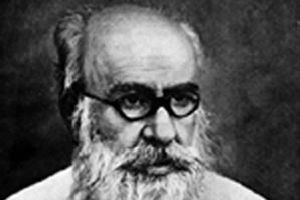Technical cookies are absolutely essential for the website to work properly. This category only includes cookies that guarantee the basic functions and security functions of the website. These cookies do not store any personal information.
Arts and History

Enric Heras de Sicars
Enric Heras was a famous Jesuit archaeologist and historian of India. The roots of Henry Heras come from the village of Adri. Descendant of Pontius IV and Maria de Heras, he joined the Jesuits in 1940. In 1922 he moved to Bombay to work as a professor of history at the University of St. Xavier, where he began his research on the history and culture. His main work was focused on the historic dynasty of Vijayanagara Aravidu (1927) and the interpretation of the inscriptions of the civilization of the seals of the Indus River Valley. This field of study gave him international recognition. His work led him to write several papers culminating in his magnum opus Studies in Proto-Indo-Mediterranean Culture (1953-1956).
Enric Heras is known as the father of Indian Christian art, for his dedication to introduce Christianity into the symbolism and style of Indian art. In the early eighties India paid tribute to him by issuing a stamp with his portrait.





